![[rec.] Nicholas P. Roberts, Political Islam and the Invention of Tradition, New Academia Publishing, Washington, DC 2015, ss. 245](/api/image/getissuecoverimage?id=picture_2017_43064.jpeg)
We kindly inform you that, as long as the subject affiliation of our 300.000+ articles is in progress, you might get unsufficient or no results on your third level or second level search. In this case, please broaden your search criteria.
![[rec.] Nicholas P. Roberts, Political Islam and the Invention of Tradition, New Academia Publishing, Washington, DC 2015, ss. 245](/api/image/getissuecoverimage?id=picture_2017_43064.jpeg)
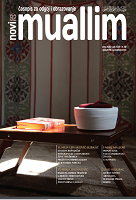
The issue of gender equality in general, and the issue of the human dignity of women, in particular, represent the ground point for any activity in the sphere of the emancipation of women. The definition of this issue is a premise for attaining the human rights of which women are deprived. Keeping this in mind, all the efforts directed towards the emancipation of women amongst Bosniaks have also triggered the issues of the value of women in regard to men and the attitude of Islam towards women in general. In this context, many Bosniak scholars have based their opinions on gender (in)equality upon the Qur’anic ayahs. This article offers a review of the writings of Bosniak scholars about gender equality, along with the interpretation of the Qur’anic views that they used to support their opinions in this regard.
More...
The present article aims to research the manuscripts of Shatibiyyah and the relevant commentaries of the same that are found in the archives of Ghazi Husrev-bey Library in Sarajevo. As a result of this research, we found the answers to some important questions like: Why is the study of the seven mutawatir qiraats, rather than ten mutawatir qiraats, more common practice in Bosnia and Herzegovina and why is it that Shatibiyyah is given preference and used as the most common source for the study of qiraat here? This endeavour brought to our knowledge some data about the first qurra hafiz in Bosnia and Herzegovina. We also present here some views of the present condition regarding the study of Shatibiyyah and the qiraats of the Qur’an-e- Kareem in Bosnia and Herzegovina.
More...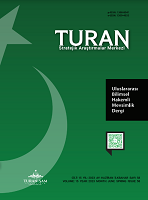
This study will focus on the views of the jurists of the four sects in Islamic law on the transition and the effect of conditional right of discretion the heirs after the death of the holder of the right of discretion. In this regard, the term of Muhayyer other related matters will be excluded from our discussion. In addition, in our study, the points where the jurists differ on the subject within a certain framework, such as the concept of Muhayyer, its evidence and its transition process are also included. For example, it will be discussed in detail how the differences of opinion will affect our subject, such as what will be the status of the discretion after the death of the Holder of the conditional right of discretion, whether the right of discretion will be canceled or not and whether it will be transferred to the heirs.
More...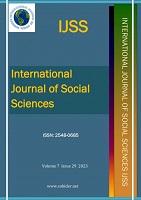
The aim of this article is to reveal the methodological approaches that deal with the issues of Islam and gender equality in the works of Moroccan sociologist Fatima Mernissi, which is discussed within the scope of Islamic feminist discourse. In this sense, the subjects of "veil" and "women's leadership", which have an important place in Mernissi's works, are discussed as examples. In this context, two distinct methodological approaches stand out. These are the contextualist approach and hadith criticism. Mernissi's use of both methodologies in her work puts her in a special and unique position among Islamic feminist researchers. As a matter of fact, Muslim thinkers working on Islam and gender equality mainly focus on the Qur'an. This causes the field of hadith to remain in the background. In addition, even if the hadiths are discussed, the number of researchers who benefit from the classical methodology is quite limited. In this case, Mernissi's interest in both the fields of the Qur'an and hadith and her use of a methodological approach such as the hadith criticism put forward by the classical ulama in order to refute the validity of the acceptance by the classical ulema that women cannot be a leader brings her to the fore.
More...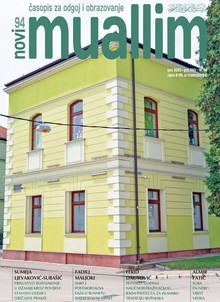
This article thematizes the organized Qurbani sacrifice for the needs of madrasas of the Islamic Community in Bosnia and Herzegovina which dates back to the year 1961 when this activity was organised in Gazi Husrev-bey’s Madrasa in Sarajevo. It offers a brief review of sources that present Sharia-legal foundation of this activity along with the definition and the explanation of the phenomenon of Qurbani sacrifice. The article also presents a categorization of this religious obligation, its value, and a review of the history of organized Qurbani sacrifice in Bosnia and Herzegovina. It gives answers to the following questions: How this activity is organized in the madrasas of the Islamic Community in Bosnia and Herzegovina? And: What are its future prospects?
More...
The article presents preparation for teaching the new content in the class of Islamic religious education in kindergarten with the topic “Hygiene is half of our health, Hygiene is a part of faith”. The preparation contains information about the aims, goals, form, and methods of teaching this class unit. It also offers a macro-articulation and micro-articulation of the teaching class along with detailed instruction for its realization.
More...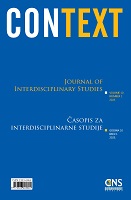
Review of: Muhammad Shafiq i Mohammed Abu-Nimer, Međuvjerski dijalog: vodič za muslimane, s engleskog prevela Azra Mulović, Sarajevo: Centar za napredne studije, 2018. 207 str., ISBN 978-9958-022-95-1.
More...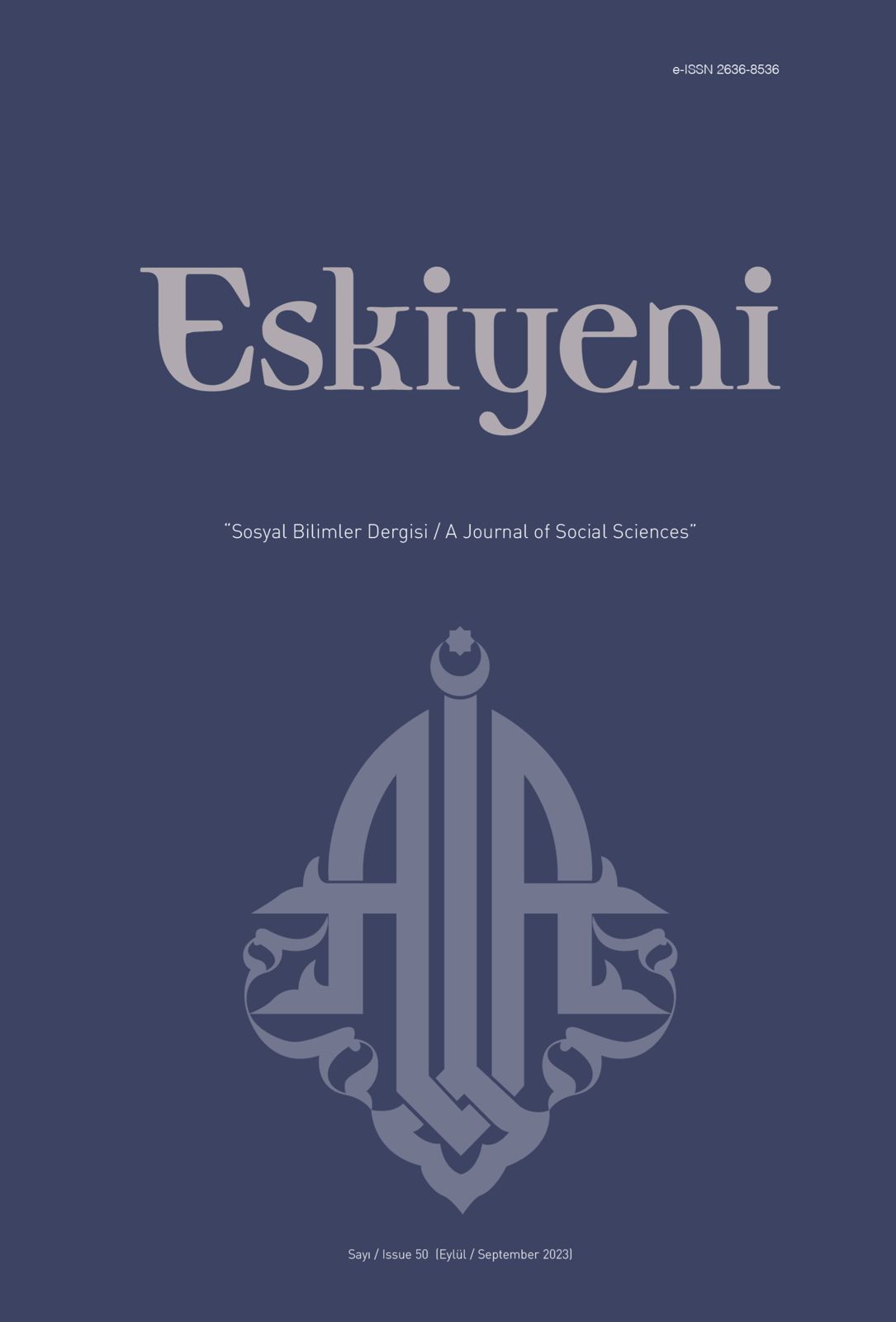
This essay seeks to shed light on the fresh line of inquiry Fazlur Rahman has opened for us. His invitation has the following main justifications: 1) As long as Islamic thought concentrates on the historical forms of religion, i.e., Islam is reduced to its early historical forms, then its universal messages stay in the shadowy areas behind the forms. To find those messages that essentially that transcend historical forms, a new field of thought needs to be established. 2) Contemporary thought tends towards secularism, that is, atheism. Consequently, this new field of thought is required to save contemporary man from atheism. 3) Islamic tradition has a rich intellectual history, but it has lost the ability to discern the Qur'an's overarching meanings (messages). Therefore, we must introduce this new field of thought in terms of a strong methodology that simultaneously unearths the messages and gives us a critical viewpoint on Islamic heritage. Islamic tradition lacks a clear space or vantage point from which to conduct self-critique.In order to conceptualize the crises in traditional and modern thought and to give the world a new opportunity to provide a solution for them, Fazlur Rahman obviously views this new field of thought as essential. In other words, the new field of thought should be a field that is not subject to or reproduces these crises. If this is the case, where is the new field of thought that can rescue us from the dilemma that modern secularism and Islamic tradition face? Fazlur Rahman argues that it is within his methodology that the new field of thought can be opened that will take us out of the Islamic tradition, which has been damaged by both secularism (atheism), rigid formalism and non-Islamic influences. This unbiased approach to the historical context of revelation can help us understand the relationship between early religious forms and their overarching teachings (messages). Then, we can view these messages as the general goals or aims of the Islam, enabling us to come up with original solutions to the issues facing the present world. He considers that the Qur'an itself provides us with this creative thinking.
More...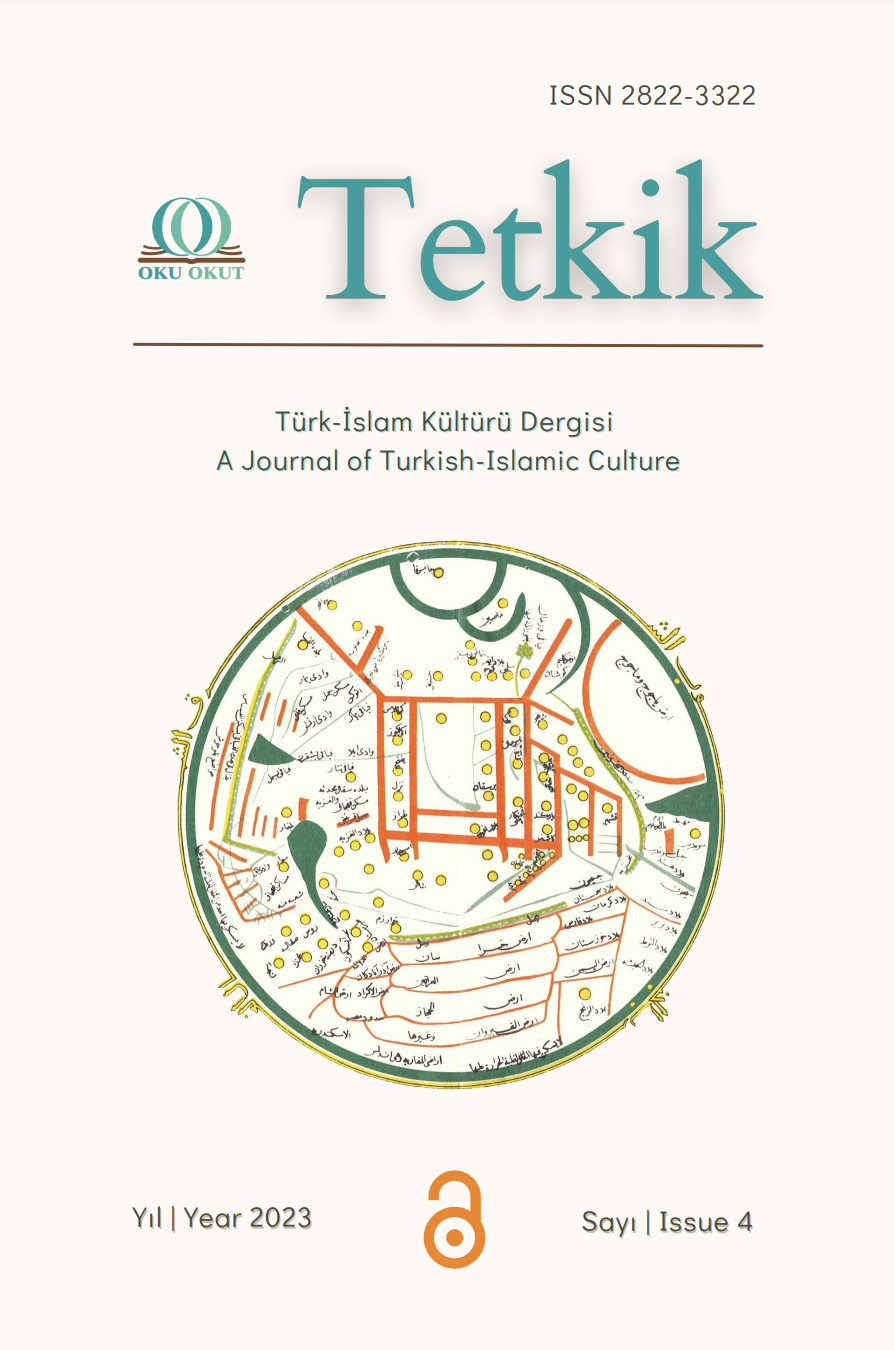
Syarif Hidayatullah State Islamic University Jakarta is one of Indonesia’s oldest and the most well-known universities. It is considered as the “Islamic Window of Indonesia”. It is a contemporary institution that has made significant contributions to science, culture, and the arts for a half century and aspires to improve social welfare and national progress. Through several historical stages, the university has reached its current level of effectiveness and quality. In this study, PhD theses on tafsir from the time the university was founded until the present were categorized and examined. It is seen that the first period of tafsir studies have parallels with the cultural codes and historical past of Indonesia. With the beginning of the democratic and reform movements in the early 2000s, the university has started to train students again actively. Accordingly, it is observed that the studies of tafsīr are getting more prosperous and more diversified. According to our findings, 185 doctoral theses were conducted between 1988 and 2021. While most of these are directly related to tafsīr, a few of them are included in tafsīr studies because they have serious links with tafsir, although they are conducted in fields such as Arabic language and kalām. In terms of content, it is possible to categorize the theses under six headings: person, work, concept, history, language, and qira‘at. The university, which adopted the four principles which are Islam (Keislaman), knowledge-ingenuity (Keilmuan), Indonesianism (Keindonesiaan), and universalism (Globalisme), is thought to continue to add to the literature of Indonesian tafsir. It is believed that the academic tafsīr research carried out in the Ph.D. program of Syarif Hidayatullah State Islamic University, the foremost higher education institution in Indonesia, will contribute to the field by being acknowledged and promoted in Turkey.
More...
There was a long debate in the last century in Islamic societies about the legal ruling on the insurance contract, and since the field of insurance was concerned with Islamic law on the one hand, and the legal field on the other hand, its topics became more and more complex. Its types were multiplied, to the extent that some types became compulsory for people in many jurisdictions around the world. This shows that the issue of insurance is both religiously and legally important. This article discusses Takaful insurance in general, and specializes in the scope of applying Takaful insurance to one type of insurance, which is vehicle insurance. Bearing in mind that vehicle insurance has become obligatory according to the legislation of many countries for its residents. Although this falls under many interests, focus has been placed on a specific angle, which is the view of Islamic law for this type of insurance. Considering that vehicle insurance may be compulsory or optional, or the insured may have two auto insurance policies (compulsory and optional) together. As the jurists of Islamic law found that Takaful insurance is permissible in their agreement at the Islamic Fiqh Academy that was held in Jeddah. The basic difference between the action of the Takaful insurance companies and their counterparts in the commercial insurance companies was clarified in compensating the insured before the third person (the injured) in the event of an accident between the two parties (the insured and the third person) provided that the third person claimed compensation. The action of the insurance fund in the Takaful companies by compensating the insured or by returning their money, given that this insurance fund is owned or liable to the insured, and the return of subscriptions to subscribers from the insurance surplus in the company is without prejudice to the company for this fund, except by legitimate methods approved by Sharia, such as speculation and agency for a known fee, then clarifying what practically some Takaful insurance companies in nowadays.
More...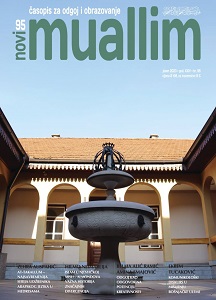
The Islamic Community has launched two kinds of the media in the 20th century: printed media (periodic publications and daily papers) and the news agency (MINA). By the end of the same century some lower-level bodies of the Islamic Community and its representatives attempted to take part in the establishment or to support the initiation of a small number of local radio and television stations, but those not only never exceeded the local level, but they soon ceased to exist or went under serious ownership or conception transformation. Keeping in mind a wide spectrum of the participation of ‘ulama in thematizing and creating the published content, this article analyses the general attitude towards media and in that regard, communicational discourse in Bosniak Islamic thought.
More...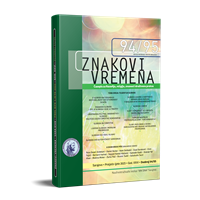
In this work we will treat the issue of freedom in its ontological aspect, as a category immanent to man which finds its true realization through man’s relationship to the transcendental. That relation implies the inward consciousness and freedom of will in submission to God in every state which corresponds to the degree of metaphysical dismantling (tajrīd). If man is in every state of his being turned towards only one God, he transcends the plane of ritualistic uniformity, which, also, presents one aspect of non-freedom. Man at the degree of Tajriid is freed from inside and he expresses his individual experience of God’s presence in his own being in his unique and personal way, and authentic dialogue with God, just like in the story of the Messenger Moses and the shepherd. In that measure in which man is more alert and open to plunging into his own transcendental infinity, he is spiritually awakened, which is a foundational, precondition for the attainment of true freedom.
More...
There are significant inconsistencies in the interpretation of the āyah 59, surah 4 (al-Nisā’), as well as in its translation. In that verse, God commands that the faithful obey Allah, His Messenger, and the category of people He calls ‘ūlū al-’amri. Many believe that the category ‘ūlū al-’amri refers to rulers, to power, but the general context of the Qur’an and reality indicate that this category denotes authorities in an ethical and scientific sense and not necessarily only in the sense of ruling. Rulers are neither always ethical nor always learned, so it does not have to be that all rulers have authority. Sometimes they are even tyrants, and, therefore, Allah would not order believers to obey tyrants, i. e. violent rulers. In this paper, the author reinterprets the phrase ‘ūlū al-’amri by critically considering the relatively frequent and incorrect understanding of it as God’s command that believers must obey rulers.
More...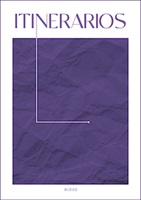
In this work, we endeavored to point out the broader framework of the Islamic intellectual tradition, which is essentially calmed in the content of Islamic philosophy and Sufism as a form of intellectual or thinking Islam. The essential object of our focus in the narrower content framework was our focus on intellectual knowledge (’ilm ’aqlī, ma’rifa) on whose universal value the intellectual tradition of Islam is based, as opposed to the traditional knowledge (‹ilm naqlī) that establishes the juridical, ethical-moral and dogmatic aspect of applied or practicing Islam. The primordial human nature (fitra), exposed to the influence of the light of these two types of knowledge in the thinking tradition of Islam, appears at the same time as an ontological and epistemological theater (al-majlā) within which the Word of God, under the macrocosmic and sacred-historical view, is constantly transforming it (the human nature) and through its continuous spiritual and moral-ethical transformation, it puts on a luxurious interpretative and hermeneutic garb.
More...
In his paper on “Discovery of what is hidden, Finding what is lost”, Rusmir Mahmutćehajić offers thoughts on three aspects of the anthropocosmological perspective of the intellectual heritage of prophetic universalism. Concerned primarily with questions and possible answers on how the absolute and contingent are related in existence as a whole and on humanity’s position as focalising observer of the world and the boundary between the known and unknown. The essay is divided into three related parts – the Most Beautiful Example, Realisation, and In the beauty of the Face. Perfected humanity mirrors fully all that exists, so that the path for ascent it offers culminates in self-realisation in the fullness of existence’s reason and purpose, in fact in the discovery of all existence as manifesting the Absolute in beauty, His presence in the contingent. The author locates his mediations within a broader presentation of the Muslim intellectual tradition as described by William C. Chittick in his comprehensive scholarly body of work.
More...
The article traces how the idea of tolerance in general, and religious tolerance in particular, has evolved in history. We will note that although the Bible is among the earliest books of mankind, it contains extremely valuable advice on this topic, being by far the Book of Books. Certain historical periods combined with the dawn of pre-modernity have stagnated and involuted from the point of view of the tolerance granted to the other different from us. To the surprise of many, while medieval Europe faced the iron hand of the Inquisition, on the shores of the Bosphorus Christian dissidents could live out their lives in return for paying a religious tax prescribed by the Koran. Under the same Ottoman auspices, the first act of tolerance in the world was issued, in Turda, in 1568, being succeeded by the Act of Tolerance in 1689, from which fundamental human rights emerged later.
More...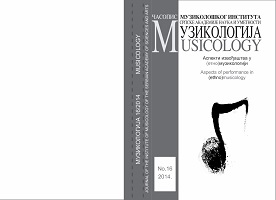
This article bases its arguments mainly on data found in secondary literature about the propriety of music in Arabic culture after the advent of Islam. Оne of the oldest sources in Arabic on the subject is Damm al-malÁhÐ (The Condemnation of Instruments of Diversion). In it, the author, Ibn Abī al-Dunyā (823–894) condemned listening to music and musical instruments. Subsequently, many books addressed the question of whether music is illicit (ar. ÎarÁm). Western scholars defined this corpus of literature as a kind of polemic about the permissibility of music and musical instruments in Islamic culture. Since there is no verse (ar. Áya) in the Qur’Án which explicitly forbids or allows music, and since, at the same time, the Îadit literature abounds with contradictory statements about the practice of the prophet Muhammad regarding listening to music and musical instruments, this question continues to resurface, either in the media or on web pages specifically devoted to the issue. This topic is also quite interesting in terms of the reflexions one can encounter in the Muslim areas of the ex-Yugoslav region. At the same time, the article touches upon the special place that the Qur’Án recitation (ar. tilÁwat al-Qur’Án) and Islamic call to prayer (ar. adÁn) have in Muslim communities. We often find both of them in chapters on religious music, and can, for instance, hear Gorans from Kosovo say (colloquially) that one sings the call to prayer. Nevertheless, although both the Recitation and the call to prayer employ the system of maqÁms found in secular forms of music, in religious Islamic circles they have never been defined as music, nor are they understood as such in Islamic public opinion. It has been said innumerable times that it is not the (listening to) music per se that is forbidden, but rather the circumstances surrounding music, sometimes associated with the consumption of alcohol or similar behaviour, which leads to transgression of Islamic ethical norms. And even though music – as suggested by Henry George Farmer – was to be found in the private, public, and religious life of the Arabs from pre-Islamic times to the present (Farmer 1967: 17), and even despite it not being forbidden in Islam, the status of the professional musician was never truly regarded as respectable.
More...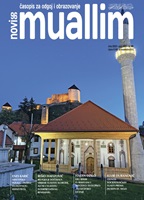
The authors here aim to present the outlines of the two financial systems. One is the conventional system based on interest, and the other is the Islamic system which prohibits interest (er-riba). The Islamic model prefers cooperation between entrepreneur and financier, known as “the ownership” model of financing. Islamic banking, as such, is a discipline of economy that studies rules, principles, and systems of banking. Types of financing and financing tools as well as the marketing of the banking services are also subjects of its interest.
More...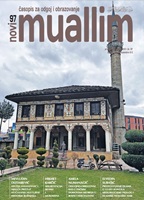
Glas Koncila, a weekly newspaper, is one of the leading religious printed media in Croatia, with a long tradition, a heritage of the written word preserved, primarily by the catholic theologians, church ministers or former church ministers of the Catholic Church in Croatia. Presenting Islam in one of the most influential religious printed media in Croatia may contribute to creating a positive or negative image of Islam and its values, which, in turn, may have an impact on the quality of the dialogue and lives and coexistence of religious communities in both, Croatia and Bosnia and Herzegovina. Keeping in mind the role of the media in the formation of attitudes and its influence on public opinion, the article presents here a short review of the content of interreligious dialogue between the Catholic Church in Croatia and the Islamic Community in Bosnia and Herzegovina and also of Islamic theology topics articles published in the Catholic weekly paper Glas Koncila in the period from the year 1991 to the year 2005.
More...